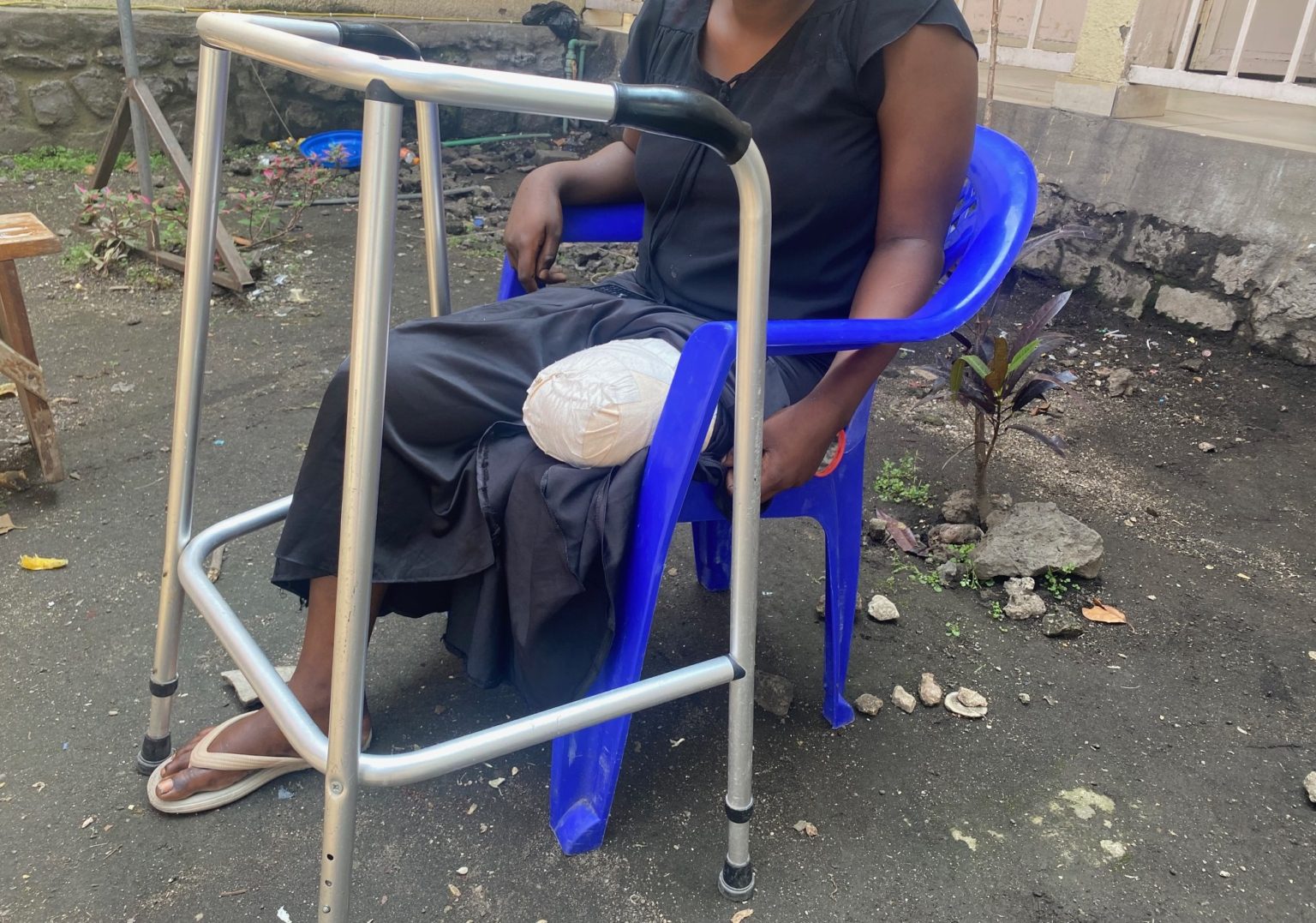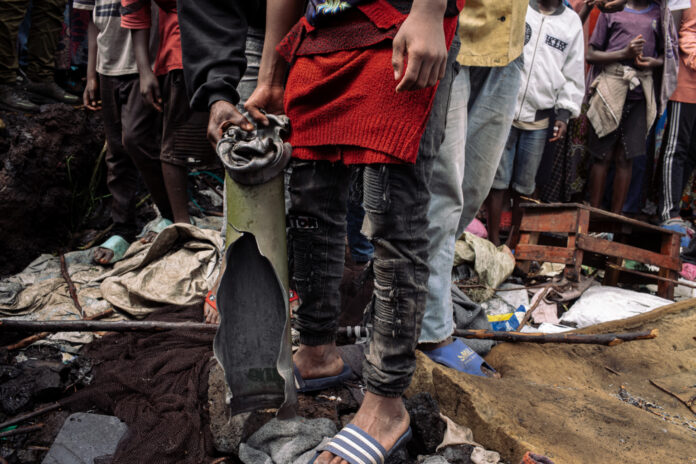NAIROBI, Kenya (Kaab TV) – Between January and July 2024, both the Rwandan-backed M23 armed group and the Congolese army (FARDC) launched explosive weapons with widespread effects into densely populated regions of eastern Democratic Republic of Congo (DRC) over 150 times.
These attacks killed over 100 civilians and injured hundreds more, violating international humanitarian law and likely constituting war crimes, according to Amnesty International.
Amnesty’s investigation involved interviews with 60 people, visits to several attack sites, and analysis of numerous verified photos, videos, and statements from witnesses and combatants.
The findings revealed that the M23 and Congolese forces repeatedly used inaccurate, ground-launched unguided rockets, including 122mm Grad rockets.
The inherent inaccuracy of these weapons and their deployment in densely populated areas put civilians at extreme risk.
“The shocking rise in the use of explosive weapons is a dangerous escalation in a conflict already marked by human rights violations,” said Agnès Callamard, Secretary General of Amnesty International.
“In the wake of intensified fighting, the M23 and Congolese army must stop using rockets, mortars, and other explosives in densely populated areas.
Both sides must adhere to international humanitarian law, taking all feasible precautions to minimize civilian harm.”
Bombings by Both Sides
International humanitarian law (IHL) mandates that parties in conflict distinguish between combatants and civilians.
It prohibits indiscriminate and disproportionate attacks, requiring all sides to take precautions to avoid harming civilians.
Attacks that result in civilian casualties are considered war crimes.
Explosive weapons with wide-area effects used in civilian zones are likely to have indiscriminate effects and cannot be aimed at specific military targets, as required by IHL.
In recent conflicts, such weapons have caused massive civilian suffering and have been used with blatant disregard for civilian protection.
This has led to 83 member states endorsing the 2022 Political Declaration to strengthen the protection of civilians from the humanitarian consequences of explosive weapons in populated areas.
In DRC, the increased use of explosive ordnance coincided with a large-scale offensive by the M23, which is largely supported by Rwanda’s Defence Force, according to UN reports.
Both sides have escalated attacks, with explosive weapons deployed in civilian areas. Despite a brief ceasefire in late July, fighting resumed heavily in October, including more explosive attacks on civilians.
Amnesty’s research highlighted several bombings that had particularly devastating consequences, underscoring the dangers of using explosive weapons in such environments.
Three attacks alone accounted for more than 50 civilian deaths, more than half of the total casualties.

Attacks Documented by Amnesty:
On 25 January 2024, an artillery round, likely fired by FARDC, hit a house in the Bukama neighborhood of Mweso, North Kivu, killing at least 19 people, including 15 children, and injuring 25 others. No military targets were present in the area at the time.
On 4 March 2024, munitions struck civilians fleeing an M23 assault on Nyanzale town, killing at least 17 and injuring many more.
On 3 May 2024, rockets fired by M23 hit a camp near Goma, killing 18 civilians, including 15 children.
Authorities in both DRC and M23 leaders have yet to respond to Amnesty’s preliminary findings.
“These bombings are continuing to endanger civilians,” said Callamard. “Despite the ceasefire, civilians, especially IDPs living in makeshift camps, remain at grave risk from explosive attacks.”
Stories of Loss and Trauma
Survivors of the attacks shared devastating stories.
John*, a father of seven, recounted the terrifying explosion at the 8ème CEPAC camp, which killed many, including children.
“It was apocalyptic,” he said. Angèle, who lost all four of her daughters, recalled, “They were reduced to ruins and torn bodies.”
Other survivors, displaced by violence, expressed anguish at the ongoing attacks.
“The M23 is killing us, the government is killing us, what have we done to deserve this?” one survivor asked.
The use of explosive weapons in densely populated areas has resulted in a significant rise in casualties and injuries, with hospitals in Goma reporting an increased number of patients treated for explosives-related wounds.
Amnesty called on international bodies to hold the perpetrators accountable, urging the International Criminal Court to investigate these deadly attacks as potential war crimes.
Amnesty also urged governments involved in the conflict to endorse the 2022 Political Declaration on the Protection of Civilians and to ensure that victims receive adequate support.
“Without accountability, violations will continue,” said Callamard. “The M23 and DRC’s army must stop bombing civilians immediately.”
–


